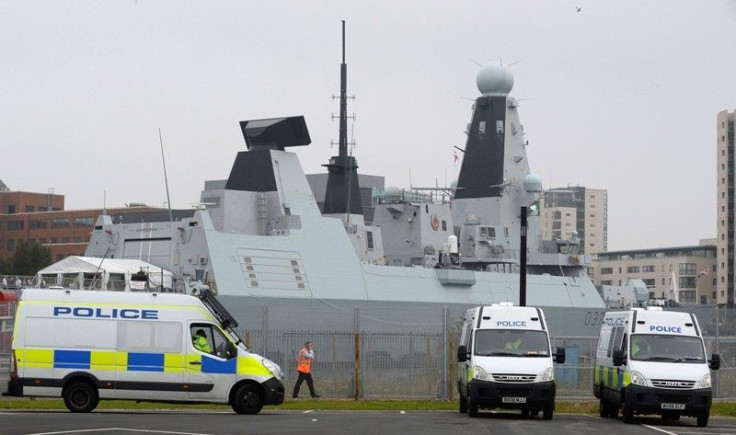Britain Commits To Send Aircraft, Troops To Baltic States; Ex-NATO Chief Warns Putin May 'Attack' Baltic

Britain is committed to arm Baltic nations to boost their defences to fight Russia in case of aggression. UK Defence Secretary Michael Fallon has promised to send 1,000 British military troops to join NATO’s rapid reaction force.
According to the British Ministry of Defence statement, Britain will be leading the rapid reaction force in 2017. UK will contribute troops to two regional headquarters in Romania and Poland, reports Reuters.
NATO had previously agreed at a summit in Wales last Sept. 2014 to create a rapid reaction force as part of efforts to reassure eastern Europe allies concerning Russia’s support of separatists in Ukraine. Defence ministers from NATO member countries are expected to discuss more details about the reaction force in this week’s meeting.
The British Defence Ministry said four Royal Air Force Typhoons will be operating alongside the Norwegian planes between May and August to secure the airspace of Estonia, Latvia and Lithuania. UK jets were also involved in the patrols over the Baltic States in 2014.
Fallon also declared in a statement that NATO’s credibility in the face of security challenges will depend on all countries involved to play their role and implement decisions agreed upon in 2014. He said the Readiness Action Plan is a demonstration of NATO’s commitment to reinforce collective defence against aggression.
Meanwhile, former NATO chief Anders Fogh Rasmussen warns Russian President Vladimir Putin may decide to “attack” the Baltic States as a test to see if NATO would mobilise its troops. The former NATO secretary-general said the true intention of the Kremlin is to break the solidarity among members of the alliance and reassert Russia’s military dominance in eastern Europe.
He told The Telegraph that the issue is not about Ukraine but Mr Putin’s desire “to restore Russia to its former position as a great power.” Rasmussen believes there is a great possibility that the Russian president will intervene in the Baltics to test NATO’s reaction. He referred to NATO’s Article 5 which is a solidarity clause concerning collective security. Article 5 states that a military attack on any member nation of NATO would mean an attack on all member states.
Rasmussen claimed Mr Putin might use hybrid warfare because he knows he will be defeated if he attacks an ally of NATO. The former NATO chief said he fears Moscow will create a “murky conflict: with Latvia or Estonia, countries with a large population of Russian minorities.
To report problems or leave feedback for this article, contact: r.su@ibtimes.com.au





















